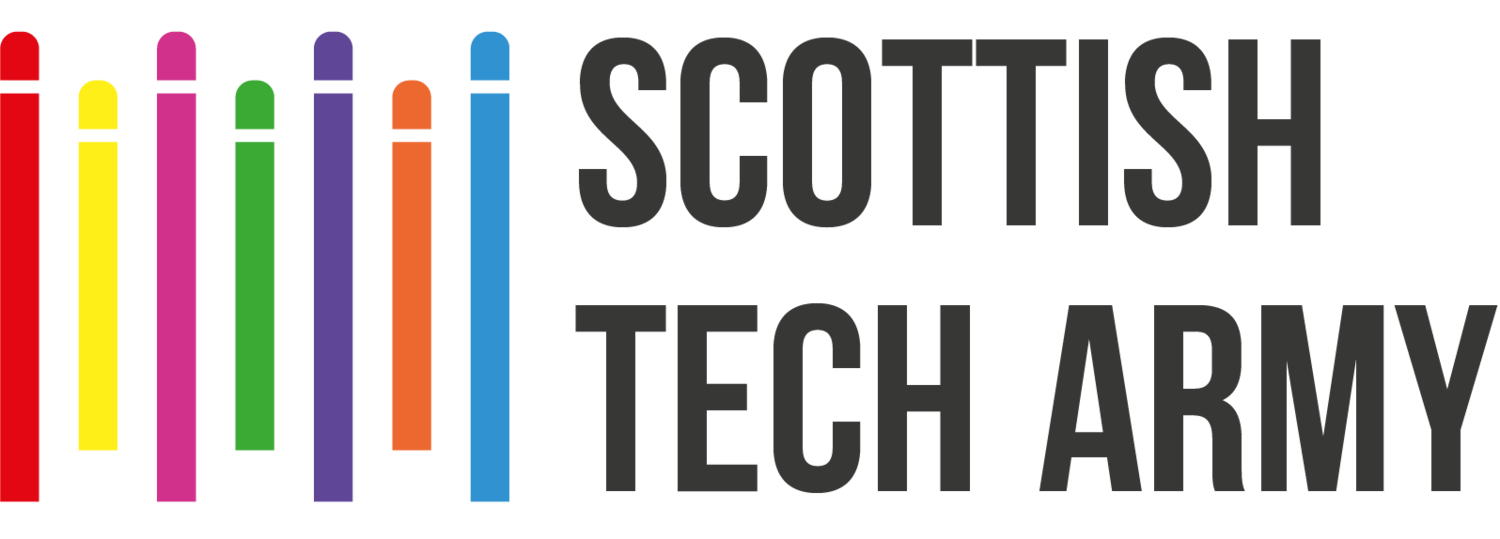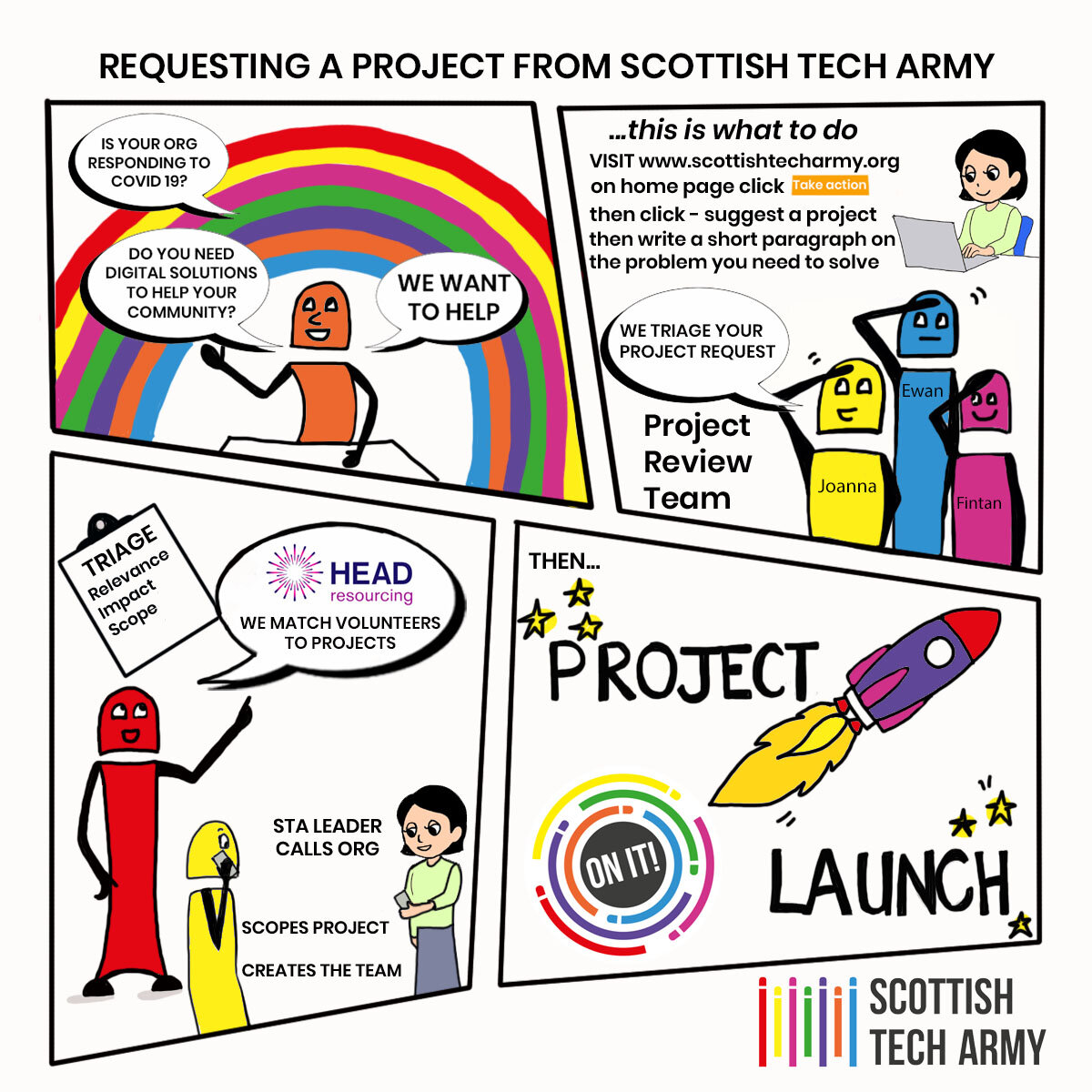Getting support from the Scottish Tech Army: meet our Triage Team
Asking anyone for help can be a daunting prospect, but at the Scottish Tech Army we’re here to listen and then share our ideas about how we think we can help. If you’re an organisation with a tech issue and have completed our website form requesting support, you’ll then be contacted by a member of our Triage Team. They're on the frontline of the Scottish Tech Army and play a critical role in our organisation.
Joanna Allen is one of our ‘first responders’ in the Triage Team. Swiftly and professionally, Joanna reviews each request for help and identifies the best resources required to get each STA project up and running. We sat down with her to learn more:
Who are the Triage Team and what do you do?
I’m one of the three members of the Triage Team; myself and two other volunteers called Ewan and Fintan manage the requests that come from organisations needing technical support and guidance. We review the requests to assess the technical feasibility and level of work required, and then work out the most suitable resources needed to be able to deliver a solution quickly and efficiently.
What kind of requests do you receive and from what kinds of organisations?
The types of organisations we hear from are extremely diverse and can range from small community led groups with minimal tech infrastructure, to bigger organisations with multi-layered systems and complex needs. Although we receive requests for help from a wide a variety of organisations in the third and public sector, we get a lot from charities across a broad spectrum of causes including mental health, healthcare, victim support and homelessness.
How do you initially help these organisations? What can they expect?
We first try and develop a problem statement i.e. identify the need or what the specific problem is that organisations need help with. When it comes to technology, we know it can be a struggle to articulate requirements, especially if you don’t feel that tech savvy! But we’re here to help with that; we’ll have a phone call and will chat through the issues and then explain what support is available. If there’s mutual agreement to go ahead with initiating a project, you’ll have a designated project manager throughout the process. Very often we find that the STA wil not only help you fix your specific issue, but will provide advice on how to use technologies more effectively.
At the triage stage trust is key: we understand that organisations are placing trust in people they’ve never worked with before during extremely challenging times; we work quickly to gain this so we can work together to solve your tech issues.
Are there any common problems you see?
Many organisations have out-dated technology due to a lack of in-house expertise or budget restrictions, and there can be a lack of knowledge as to what the solution is and how simple tech issues can be to fix. But my job is to break down that barrier; I’ll work with you to making a clear plan of action about how the STA can help.
It could be a quick website fix that we can sort in 24 hours (like we did for Edinburgh charity Get2gether), it could be doing a zoom training session with your team, and if there’s many areas in which you need assistance which results in a bigger project, then please be assured that we’re extremely mindful not create a big overhead and unreasonable additional infrastructure costs.
What’s your favourite part of your role within the Scottish Tech Army?
There’s lots of things! I really enjoy working in the Triage Team as I get to (virtually) meet lots of lovely people and the STA is a really supportive community. In addition to working in the Triage Team, I’m also a Project Manager for one of the Scottish Tech Army’s bigger projects with an organisation called Community InfoSource. The project is specifically called Challenging Violence Against Women – it’s a hugely important cause, especially due to the rise in domestic violence since the outbreak of Covid-19. It’s humbling work and is supporting some of Scotland’s most vulnerable women and their families.
I found it extremely moving when I got some feedback from Hassan Darasi at the organisation who said ‘I run short of words to express my thanks and gratitude to those behind the Scottish Tech Army, those who are freely sacrificing their time to lend a helping hand. This is much appreciated and it will definitely have an impact on the important work that we are doing’.
Finally, what message would you send to organisations that are considering reaching out to the Scottish Tech Army but are unsure if we can help?
I’d tell people just to get in touch; we’ll have a chat and talk you through it. Our projects are very much a partnership but our solutions can offer brilliant growth opportunities to your organisation: we can help you amplify what you’re already doing.

